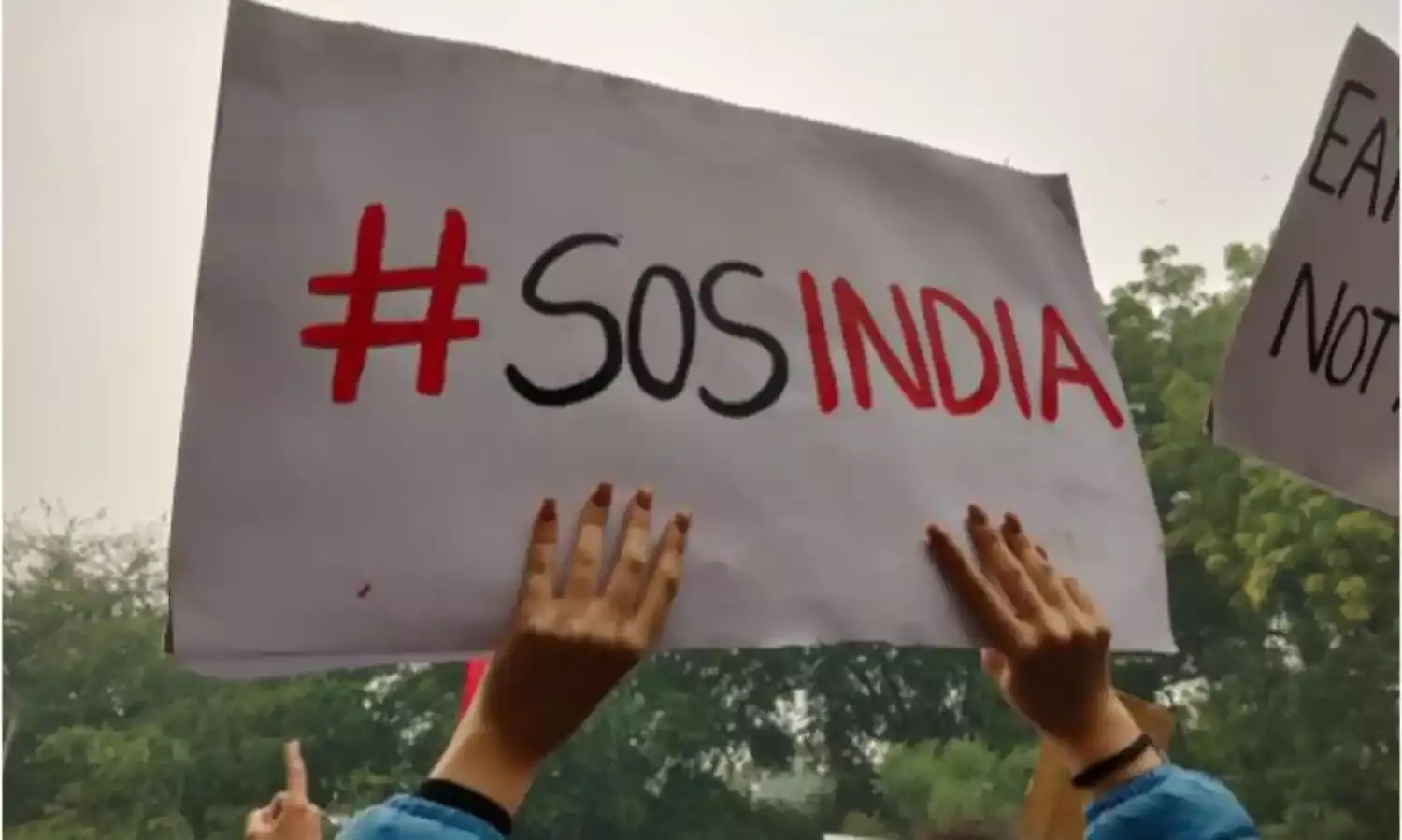Delhi Against CAA
Citizens Defy Section 144 to Protest Citizenship Amendments;

NEW DELHI: Defying Section 144 imposed in several parts of New Delhi, thousands gathered at Jantar Mantar to protest against the Citizenship (Amendment) Act today. The protesters moved to Jantar Mantar post the previously planned marches at Mandi House and Lal Quila (Red Fort) areas were disrupted and Section 144 imposed, prohibiting the assembly of more than four people.
Previously, two marches were planned, one from Lal Quila to Shaheed Park organised by civil society members which was scheduled to merge with the demonstration starting from Mandi House called for by Left-aligned political parties. However, many were detained at these two locations, forcing the protesters to congregate at Jantar Mantar to carry on their protest.
“We had to run. There was a heavy crackdown on the protest. The Mandi House protest also, there was a last minute change in venue because there was an imposition of Section 144 in Lal Quila area. So the students decided to group in Mandi House. As soon as students reached Mandi House, within 15 minutes the police agitated the protesters. The protesters came to Barakhamba road after that. Even there the police used private buses to put people in them and take them,” Sanjula, a Journalism student from Jindal Global University told The Citizen.
According to Sanjula, many of those detained were put in private buses being used for police duty and either dropped off at far-away locations or taken to police stations. “They've blocked the internet so more people cannot show up,” she said. Nineteen metro stations including Mandi House, Rajiv Chowk, Munirka and Vishwavidayalaya were also closed in Central Delhi, restricting the movement of protesters.
“The argument against CAA is a very morbid one for me. The very fact that we are discriminating against religion, no matter what religion, is antithetical to our secular nature. Moreover, for me I feel like the crackdown that's been seen because of emerging protests has pushed these protests and given it more momentum,” Sanjula stated.
“We've seen the Delhi police has already admitted that they were the ones who invited violence against Jamia students. This kind of crackdown on dissent echoes of a very Emergency-like era for me. And personally I feel if someone doesn't notice the beginnings of fascism and an authoritarian state, it'll be too late to stop once everything is rolled out and made firm and implemented.”
“At the end of the day I think they've got what they wanted—not a march but a congregation of protesters,” Sanjula told The Citizen. To chants of “Awaaz do, hum ek hai!” and “Inquilab Zindabad”, students gathered between police barricades at Jantar Mantar to protest against police brutality on students, the CAA and NRC.
“We are from Guwahati, Assam. All of us know how it all started. We weren't able to give our input in Guwahati so we are here standing against CAA,” Dipsikha Devi, a recent graduate from Ambedkar University said.
“I don't think it's now unclear what the motive of the government is. They are attacking secularism, they are attacking our nation. And we don't want fascism In this country. We know where this leads, said Shubham Jani, a Delhi University student.
“This Bill which has been passed, which has been made into an Act, we know it will detain a large number of people. But people are not thinking about what will happen to those in detention centres. This is exactly what happened in Germany. That's why I'm here, I want to protest. I know we will succeed if we are together. I do not promote violence. I know it's getting violent elsewhere. But this is the way and we will win,” he continued.
Reports emerged from the Lal Quila area of protesters continuing to conduct a peaceful sit-in protest despite the police detaining many. At Jantar Mantar, a few individuals sat down for a seven hour long hunger strike against “unconstitutional violation of Assam Accord Citizenship (Amendment) Act, 2019”.
Pictures and videos are being circulated on social media of protesters offering roses to police officials and urging them to speak with the protesters at Jantar Mantar to chants of “Dilli Police Baat Karo, Aao Hamare Saath Chalo. Hum Yuva Hai Baat Karenge, Naki Ghusa Laat Karenge.”
“I have one question—India erupted over the so called Muslim ban when Trump administration rolled it out and we cheered when people showed up at airports to protest against this. Muslim ban was not rolled out as "Muslim ban". It was implied. This is also implied. It leaves out Muslims and Tamils. Anyone who doesn't belong to those six communities because of their religious identity, they are not offered protection by our democratic country,” Sanjula stated.
Abhinaya Murthy, a recent postgraduate said, “The problem of one nation, one religion, one language is the problem of the ‘one’. We are a plural country. Dare not try to impose ‘one’ hateful idea of India on us. We will dissent.”
“I dissent because this is not the country I call home, I dissent because this is one man’s regime to build a nation out of spite and exclusion instead of love and inclusion. I dissent and therefore, I protest,” she told The Citizen.

